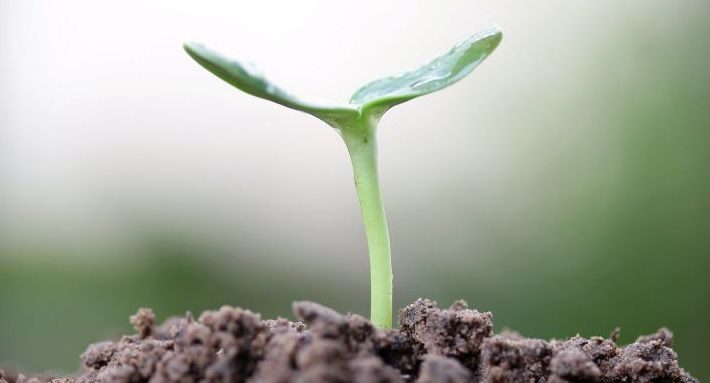When I was growing up, money was scarce at times, and we often had to do without. My dad worked two jobs to help make ends meet while my mom made every penny stretch as far as possible. That was probably the major reason why everything they gave me was always two or three sizes too large. I remember when I was 12 years old, I received a pair of roller skates – so large that I had to stuff an old sock in them to fill up the toe space. When I took them out of the box, I looked up and said, “Mom, I can’t skate with these.” She said, “Be grateful for what you have, Allen.” And then she said the phrase I had become so accustomed to hearing over the years, “Don’t worry; you’ll grow into them.”
A year later, I really wanted a new baseball mitt and some cleats. On Christmas morning, I opened my packages and there it was, a brand-new leather mitt and a sporty pair of baseball cleats – except these were sized to fit Goliath – who, by the way was about nine feet tall. “Mom, these are too big,” I said. “Be grateful for what you have, Allen,” she said again. “Don’t worry; you’ll grow into them.”
I’m not sure if you caught it or not, but I just told you a parable. Parables are typically fictional stories derived from everyday experiences but often with a surprising twist that prompts listeners to dig more deeply into their meaning and illumine the spiritual dimension of life. And when listeners grasp that connection between the parables and the spiritual realm, it’s impact is both a discovery and a revelation.
Jesus tells us two parables today about the seed that grows in secret and the mustard seed. Jesus often used parables to teach about the kingdom of God in hopes that we would achieve that “aha” moment when our consciousness becomes permanently changed.
The one thing that throws people is that when they hear the phrase ‘the kingdom of God’ – they think that it is a place. When we hear this, we naturally think of heaven. But the kingdom of God is not a place, it’s a time – a time when God’s power for good is fully evident in the world and where evil no longer exists. If we think about the kingdom of God in this way, it completely reshapes our understanding of Jesus’ teaching.
In the first parable, Jesus says the kingdom of God “is as if a man were to scatter seed on the land and would sleep and rise night and day and through it all the seed would sprout and grow, he knows not how.”
If we take the seed to be the Word of God, we can then interpret the growth of the plants as the working of God’s Word in each one of us. The fact that the crop grows without any intervention means that God can accomplish his purposes even when we are absent or unaware of what he’s doing – which is why “we walk by faith, not by sight.”
So, we plant (or scatter) through our words and actions. In other words, we live our normal lives. We go on with all of our daily activities. We work at our jobs, we raise our families, we go to school, and on and on. But most importantly, while attending to our own worldly concerns, we continue to do God’s work by planting seeds and patiently waiting for its growth; and then God takes it from there.
When I was a child, I remember planting sunflower seeds in Styrofoam cups – and then I waited and watched for something to spring out of the dirt and slowly grow. As much as I wanted to dig into the ground to see how it is growing, I couldn’t because I would harm the plant. I had to wait with patience – which also involved trust and cooperation. For us, once we receive the seed of Gods’ Word in the soil of our hearts, we must be ready for it to grow within our very being so it can transform our lives, making us a plentiful harvest and enabling us to become bread or nourishment for others.
This is all about our own slow, but constant growth and transformation. We need to continue doing our part in preaching the Gospel through our words and actions. Whether we see the fruit or not, we must be willing to carry on with the confidence to sow the seeds of God’s Word in our own lives and in the lives of those around us – because the kingdom of God is all about justice, peace, love, and the joy that is given by the Holy Spirit.
The second parable of the mustard seed and its surprising growth is a story about hope and encouragement for those of us who are frustrated because of what seems to be the small and insignificant growth of the kingdom of God and its impact on the world around us. We look around and find injustices happening left and right and up and down. There seems to be no respect for the sanctity of life, and there is less interest in treating others with the dignity and respect they deserve.
You and I must feel at times how the disciples of Jesus felt. Evil is out there in the world, and it is so widespread that it forces us to doubt that we can do anything about it. And sin continues to be an attraction for us, and it makes us feel unworthy to be the instruments that Jesus needs to spread his kingdom. Yet we must continue to grow that kingdom in the world even as we continue to work on improving ourselves. We must continue to believe that selflessness in the service of others will overcome the selfishness in ourselves.
Jesus reminds us that the mustard bush does not exist only for itself, but it also offers a welcome refuge for the birds who nest in its shade. This means that you and I need to spread out our branches to others, especially those who are enduring the heat of suffering, who are searching either physically or spiritually for some shade, comfort, or sanctuary. This is how we will see and experience the magnificent kingdom of God coming to fullness in our midst.
Today’s readings invite us to embrace a new perspective of hope, calling us to a renewal of our commitment to grow into our responsibilities of building up the kingdom of God on earth, in our communities, in our parish, and in our families. We must strive to be patient and faithful in sowing the seed, praying for a bountiful harvest, and leaving the results to the Lord.
If these responsibilities sound too big or too overwhelming to achieve, don’t worry; you’ll grow into them!




